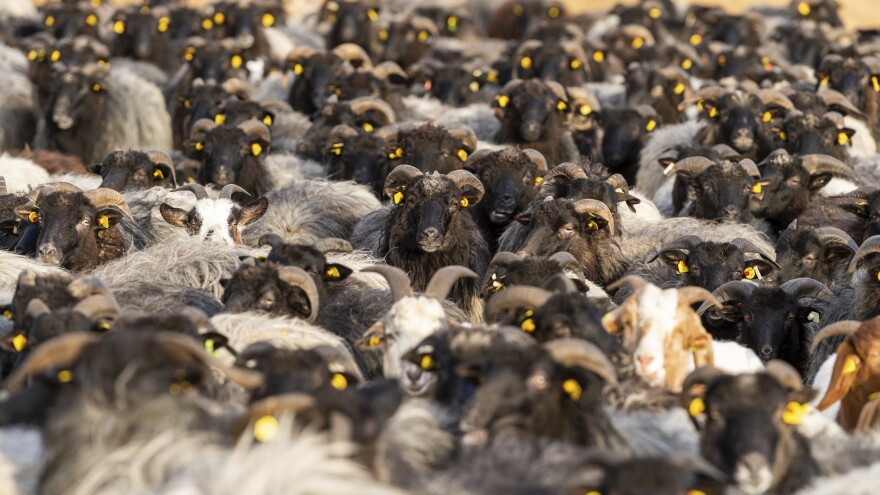BERLIN — Tasty bits of bread did the trick for about 700 sheep and goats to join Germany's drive to encourage more people to get vaccinated against COVID-19.
The animals were arranged on Monday into the shape of a roughly 330-foot syringe in a field at Schneverdingen, south of Hamburg.
Shepherd Wiebke Schmidt-Kochan spent several days practicing with her animals, news agency dpa reported. But she said in the end, it wasn't difficult to work things out — she laid out pieces of bread in the shape of the syringe, which the sheep and goats gobbled up when they were let out into the field.
Organizer Hanspeter Etzold said the action was aimed at people who are still hesitating to get vaccinated.

"Sheep are such likeable animals — maybe they can get the message over better," he said.
The German government has made an accelerated vaccination campaign its top priority in attempting to beat back the latest wave of COVID-19 infections.
The percentage of the population that has received at least two shots stood on Monday at 71.2%. Those who have received a booster shot has increased much faster in recent weeks and now stands at 38.9% of the population.
Health Ministry spokesman Andreas Deffner said on Monday that the public debate over vaccinations in recent weeks appeared to have prompted some holdouts to change their mind.
In a more conventional contribution to the drive, Berlin nightclubs on Monday pitched in by offering vaccinations.
Lutz Leichsenring, spokesman for the Clubcommission, the association of Berlin nightclubs, said that half of the vaccination appointments have already been taken up. Sage Beach and several other clubs are offering about 4,500 shots in total this week.
Authorities in Germany have recently closed or put restrictions on clubs in order to slow the omicron variant's spread. Berlin authorities banned dancing, prompting many clubs to shut their doors.
"We all hoped that if you have such a high vaccination rate as we have in the club scene, that you can then also hold safe events, and that is unfortunately not the case," Leichsenring said.
Copyright 2022 NPR. To see more, visit https://www.npr.org.



